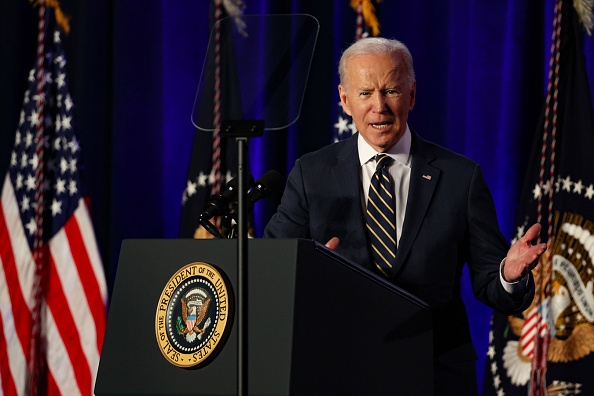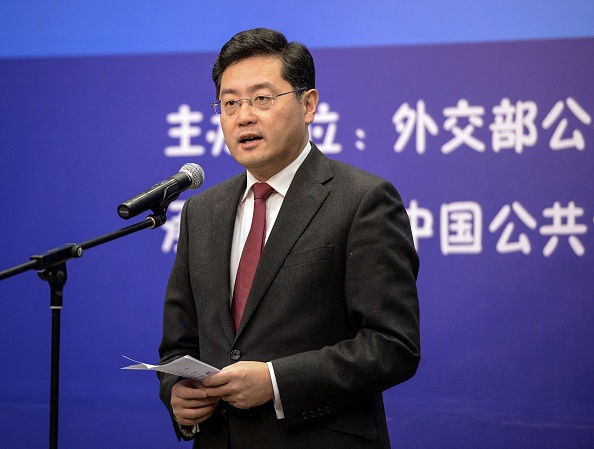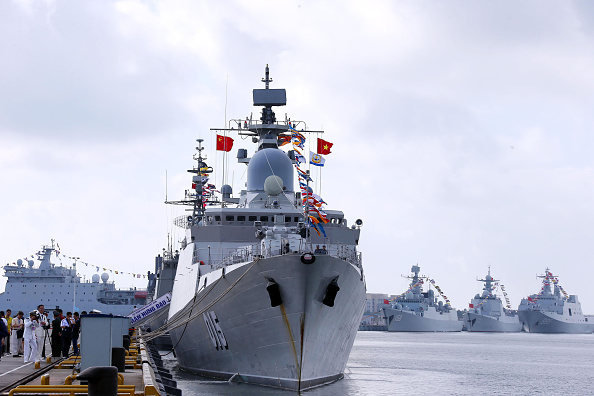
 Playing Policy
Playing PolicyAs the Biden administration works to strengthen U.S. competitiveness against China vis-a-vis the proposed America COMPETES Act, it has enlisted an unlikely group for help, according to reporting by Axios. Former Trump officials have been brought in by the administration to help convince Congress to pass the legislation in a bipartisan and depoliticized maneuver. In recent months, the bill has stalled due to a discrepancy between the House and the Senate on how to spend billions of dollars to strengthen America's supply lines.
Not all of Biden's trade policy is from the Trump playbook. The Biden administration began ending some Trump-era tariffs this week, including a move to help manufacturers that rely on inputs shipped from China. The decision reinstates 352 of the 549 eligible tariff exclusions, after months of complaints by business groups that the administration was not doing enough to alleviate financial pain from the Trump trade war. The exemptions cover a wide range of the initially estimated $370 billion worth of Chinese imports that faced punitive tariffs.
Officials from both the U.S. and China have also pledged to improve cooperation in the agricultural sector, calling it a "a bright spot" in bilateral relations, to "inject new impetus" to ease the overall rivalry and fight climate change. Speakers at the 2022 China-U.S. Agricultural Roundtable forum agreed to cooperate further, including on black soil and the prevention of food waste, and to put more effort into climate change action.
"Our agricultural trade registered a quick comeback from the pandemic and trade frictions, and rose to US$47 billion in 2021, with China's imports reaching US$39 billion, up by 46 per cent year on year," said Qin Gang, China's ambassador to the United States.
 Cooperation and Crisis
Cooperation and CrisisAs the Ukraine-Russia war drags into its second month, the Chinese Ambassador to the U.S. has raised a subtle but notable shift in its policy towards Russia.
"China and Russia's cooperation has no forbidden areas, but it has a bottom line," Ambassador Qin Gang told Phoenix TV. "That line is the tenets and principles of the United Nations Charter, the recognized basic norms of international law and international relations."
Calling reports that China is providing military assistance to Russia "disinformation," Qin pledged that China "will do everything" to de-escalate the war in Ukraine, yet he stopped short of condemning Russia's invasion of Ukraine and said that it is highly unlikely that Moscow would end the war because of condemnation.
The comments follow a meeting between President Biden and President Xi, in which Biden made clear the "implications and consequences" if China aligns with Russia and provides it "material support" for its attacks.
Biden has since called for Russia to be expelled from the Group of 20 major economies, a move that China is unlikely to support. China has continued to back Russia as part of the G20, calling it an "important member."
"No member has the right to remove another country as a member," said Chinese foreign ministry spokesperson Wang Wenbin at a news briefing on Wednesday. China had earlier asked Indonesia to keep Ukraine off the G20's agenda.
Biden, who is currently in Europe for a meeting with NATO allies, said he was "hopeful" that China will not provide support for Russia's war on Ukraine because of the depth of its economic ties with the West. In their bilateral dialogue, Biden reminded Xi of the economic co-dependency between the U.S. and China, citing how many Western companies have pulled out of Russia.
Read more in "China Must Navigate the Ukraine Crisis with Pragmatism and Integrity," by Brian Wong, a DPhil in Politics candidate and Rhodes Scholar at Balliol College, Oxford.
 Pacific Pivots
Pacific PivotsA top U.S. military commander accused China of fully militarizing at least three of its artificial islands in the disputed South China Sea, fueling concerns in Washington about the potential threat posed to other nations operating in the region. The U.S. Indo-Pacific commander, Adm. John C. Aquilino, said China is arming the islands with anti-ship and anti-aircraft missile systems, laser and jamming equipment, and fighter jets. He also emphasized that the move is contrary to previous commitments made by Xi Jinping to not transform the man-made islands into military bases, as they are in contested waters.
China responded by stating that it has the right to develop the South China Sea islands as it sees fit. China's deployment of "necessary national defense facilities on its own territory is a right entitled to every sovereign country and is in line with international law, which is beyond reproach," said China's Foreign Ministry spokesperson Wang Wenbin. He also noted that U.S. military activities in the area "stir up trouble and make provocations," which "seriously threatens the sovereignty and security of coastal countries and undermines the order and navigation safety in the South China Sea."
Wang's accusation of the U.S. comes as Washington and the Philippines plan to hold their largest military drills in three decades. Nearly 10,000 American and Philippine soldiers will begin training in Southeast Asia next week, conducting drills on maritime security, counterterrorism, and disaster relief. The drills also come as Chinese officials have claimed that the U.S. is trying to establish an "Indo-Pacific version of NATO."
At the same time, in what U.S. allies Australia and New Zealand call their "backyard," the Solomon Islands have confirmed they are seeking to expand their security partnership with China, following leaked reports that proposed cooperation was in the works. It was also reported that a shipment of replica firearms was sent by China to the Solomon Islands police. The government statement said Friday that Honiara was in the process of "diversifying the country's security partnership including with China," in efforts to create a secure environment for local and foreign investment. The reports have continued to intensify concerns from the U.S. and Australia about Beijing's footprint in the region.
Read more in "Gamechanger: How the Ukraine Crisis Reshapes the South China Sea Disputes," by Richard J. Heydarian, a Professorial Chairholder in Geopolitics at the Polytechnic University of the Philippines.
Prepared by China-US Focus editorial teams in Hong Kong and New York, this weekly newsletter offers you snap shots of latest trends and developments emerging from China every week, while adding a dose of historical perspective.
- 2022-03-18 One Hand Cannot Clap
- 2022-03-11 Political Forecast
- 2022-03-04 Competitive Advantage
- 2022-02-25 A Sovereign Tightrope
- 2022-02-18 Strategic Disengagement
- 2022-02-11 In the Thick of It
- 2022-02-04 Year of the Tiger
- 2022-01-28 Zero-Sum
- 2022-01-21 An Uncertain Future
- 2022-01-14 Digital Advances
- 2022-01-07 The Dawn of a New Political Year
- 2021-12-17 Clamp Down
- 2021-12-10 Debating Democracy
- 2021-12-03 Managing Competition
- 2021-11-19 Responsible World Leadership
- 2021-11-12 A Historic Transformation
- 2021-11-05 A Green Rivalry
- 2021-10-29 Dry Tinder